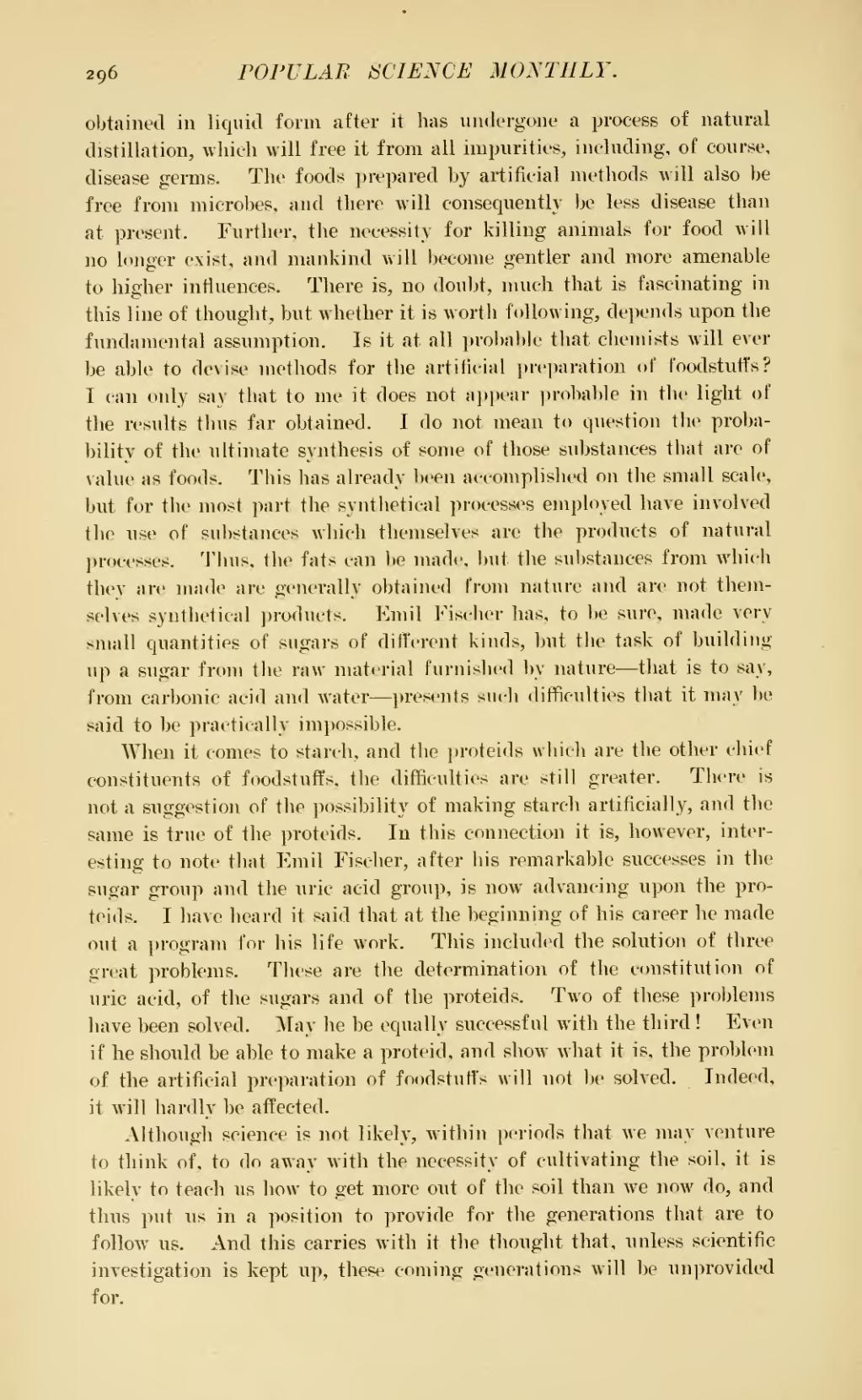obtained in liquid form after it has undergone a process of natural distillation, which will free it from all impurities, including, of course, disease germs. The foods prepared by artificial methods will also be free from microbes, and there will consequently be less disease than at present. Further, the necessity for killing animals for food will no longer exist, and mankind will become gentler and more amenable to higher influences. There is, no doubt, much that is fascinating in this line of thought, but whether it is worth following, depends upon the fundamental assumption. Is it at all probable that chemists will ever be able to devise methods for the artificial preparation of foodstuffs? I can only say that to me it does not appear probable in the light of the results thus far obtained. I do not mean to question the probability of the ultimate synthesis of some of those substances that are of value as foods. This has already been accomplished on the small scale, but for the most part the synthetical processes employed have involved the use of substances which themselves are the products of natural processes. Thus, the fats can be made, but the substances from which they are made are generally obtained from nature and are not themselves synthetical products. Emil Fischer has, to be sure, made very small quantities of sugars of different kinds, but the task of building up a sugar from the raw material furnished by nature—that is to say, from carbonic acid and water—presents such difficulties that it may be said to be practically impossible.
When it comes to starch, and the proteids which are the other chief constituents of foodstuffs, the difficulties are still greater. There is not a suggestion of the possibility of making starch artificially, and the same is true of the proteids. In this connection it is, however, interesting to note that Emil Fischer, after his remarkable successes in the sugar group and the uric acid group, is now advancing upon the proteids. I have heard it said that at the beginning of his career he made out a program for his life work. This included the solution of three great problems. These are the determination of the constitution of uric acid, of the sugars and of the proteids. Two of these problems have been solved. May he be equally successful with the third! Even if he should be able to make a proteid, and show what it is, the problem of the artificial preparation of foodstuff's will not be solved. Indeed, it will hardly be affected.
Although science is not likely, within periods that we may venture to think of, to do away with the necessity of cultivating the soil, it is likely to teach us how to get more out of the soil than we now do, and thus put us in a position to provide for the generations that are to follow us. And this carries with it the thought that, unless scientific investigation is kept up, these coming generations will be unprovided for.
